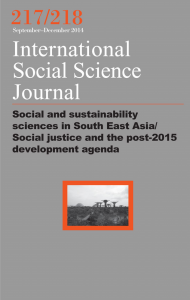Surviving the Job Search: It’s not about you
I am one of the job search survivors – if “survival” means “got a job”. I did actually get a job. I got a good job at a university and city where I can build a life. I am one of the lucky few. In preparation for this post, I have been racking my brain trying to come up with some things I did well that could be helpful to those on the market this fall. But the fact is, I’m still nursing my wounds. I still get rejection emails daily which kindly convey that the department “had a lot of qualified candidates”, “your credentials are exemplary”, and “they have selected another candidate”. These daily emails serve to remind me how vulnerable I was during the job search and how precarious my future felt for a long long time.
At this early stage – post job market, the only advice I can honestly convey is to 1) control the things you can and 2) recognize that most everything about this process is NOT ABOUT YOU.
Make a list right now of all the things you can control about the job market search. Then make a list of the things you cannot control. The list of things you can control should include:
- A curriculum vitae that is accurate, well-organized, and free of errors. At this point you cannot worry about how few publications you have or that they are not in top ranked journals. Be proud of what you do have and choose a format that highlights your strengths.
- A Cover Letter that uses active verbs, has specific examples, and addresses the needs of the search committee. Fundamentally though the letter should be a reflection of your work. Lots of websites and blogs are available to help you write a cover letter that really stands out. I used The Professor Is In. It’s a comprehensive blog/advice column that provides very real tips that are truly useful.
- All other portions of your application, transcripts (get them early when you don’t owe money to your current institution – which for me was about 2 weeks each semester!), teaching statement, sample teaching materials, student evaluations, and letters of recommendation.
- You can control your appearance – an appropriate interview suit, a decent haircut and the like.
- Finally, for those who are not bound to their current city, you can control the number of applications you submit.
My mantra was, “I definitely won’t get a job I did not apply for”. So I developed a daily routine and I applied for all the jobs. All.The.Jobs. I applied for an embarrassing number of jobs. In the scope of things I can control this was one area where my obsessive nature helped. I knew that at the end of this long, painful process that if a job in academia wasn’t in the cards for me at least I could say that I did everything I could to get a job. I could look my family in the eyes and say, “I did everything I could”.
The things that I could not control are whether my application was read, considered, or appreciated. I could not control the internal dynamics of the department or whether their funding line will hold. I could not control the other candidates, whether there was an inside hire, whether the department “liked me”, or whether I was treated professionally during the process.
I can control me, my work, and that I applied at all. The daily rejection emails still burn because they are a reminder of how out of my control the entire process is. Well-meaning family members asked each time they saw me, “Where do you want to get a job?” I tried not to answer that question because the response is an hour long explanation of the academic job market process. I gave a canned response such as “somewhere on the east coast, in the mid-Atlantic region”. It’s very difficult for those outside academia to understand that “where” and “want” are out of my control. Sure, there are some places I prefer over others but for me I preferred a job over not having a job so tucked the where behind job and kept applying. In summary, focus on the things you can control and recognize the things you can’t. My office mate reminded me every day that “we will all get jobs and it will be glorious”. I offer this sentiment to you as well.
Helpful Resources:
Of Housing and Job Markets: Trying to find reason amongst the fickle…
Why Your Job Cover Letter Sucks (and what you can do to fix it)






1756-2589/asset/NCFR_RGB_small_file.jpg?v=1&s=0570a4c814cd63cfaec3c1e57a93f3eed5886c15)
1 Response
[…] Surviving the Job Search: It’s not about you » Sociology Lens. […]